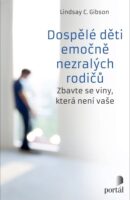Miroslava Mošová, Martina Pulkertová, Oldřich Chytil
Medailon autorů:
Miroslava Mošová is a graduate of Master’s studies of Management of Social Work Service Organizations, Faculty of Social Studies, University of Ostrava. From 1995–1999 she worked as a nurse in a urology ward at Olomouc University Hospital. From 2004–2008 she worked as a nurse and a medical social worker at the Municipal Hospital in the town of Odry. Since 2008 she has only worked in the position of a medical social worker.
Martina Pulkertová studied the Master’s programme of Social Work with a Medical Profile under the Faculty of Social Studies, University of Ostrava, where she has currently been completing her PhD studies. In her dissertation, Martina focuses on social work with seniors in their adverse financial situation and seeks how to prevent the fall of the elderly into a financially unfavourable situation, and/or how to help them overcome these stressful difficulties using various methods of social work.
Oldřich Chytil works at the Faculty of Social Studies, University of Ostrava. His field of study is theory and methods of social work and consequences of modernization for social work. He is the director of the European Research Institute of Social Work at the University of Ostrava.
Anotace:
OBJECTIVES: The presented paper focuses on availability of social services for older people in the Ostrava region with an aim to examine to what extent social services are available to senior citizens. THEORETICAL BASE: The theoretical background presents the current state of knowledge based on the study of professional literature and on the results of the research carried out in the studied areas. METHODS: The article presents the results obtained from the original quantitative research strategy that made use of structured interviews. OUTCOMES: Research, in addition to the results of different aspects of the availability of social services and senior’s awareness of social services, showed also e.g. that social services are too expensive for respondents, and that seniors are ‘forced’ to use care allowances mostly to cover medical costs rather than to cover social services. The paper in the end also analyses the causes of the underuse of social services by seniors. SOCIAL WORK IMPLICATIONS: The findings contribute to knowledge in fields of availability of social services for the elderly in the Ostrava region, use of care allowance, and seniors’ awareness of social services. This research can provide background for improvement in quality of social services for senior citizens in the Ostrava region.
Klíčová slova:
affordability, geographical accessibility, time availability, awareness, social services, senior citizens
s. 53–66






